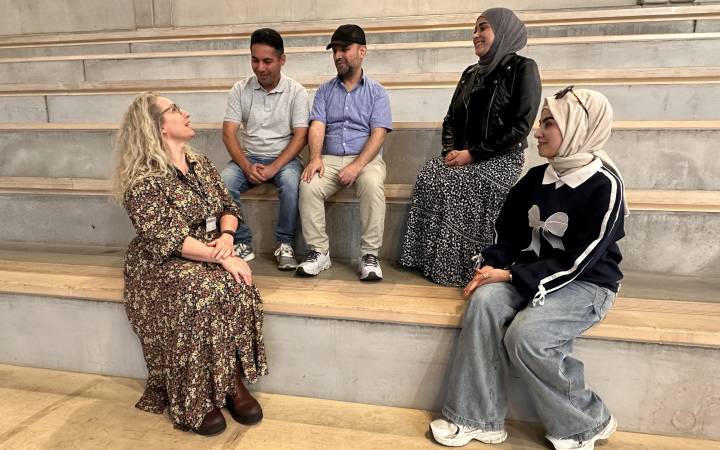Kingston University experts identify important leadership mechanisms to improve national health and social care systems in research collaboration
Posted Thursday 31 March 2022
 The joint study by Kingston University and King's College, London will help improve health and social care systems nationwide.
The joint study by Kingston University and King's College, London will help improve health and social care systems nationwide.
A research team led by Kingston University and King's College London has identified seven important components of leadership in integrated health and social care teams and systems. These were released today in a study funded by the National Institute for Health Research (NIHR).
The components identified, referred to as mechanisms, will inform policy and leadership development and support improvements to health and social care systems nationwide.
The seven mechanisms are inspiring intent to work together, creating the conditions to work together, balancing multiple perspectives, working with power, taking a wider view, a commitment to learning and developing and clarifying complexity.
The report, which has been published in the NIHR's Health and Social Care Delivery Research Journal, was worked on by social work expert, who was at Kingston at the time of study, Dr Simon Fletcher and Emerita Professor of Health and Social Care at Kingston University, Fiona Ross alongside colleagues at King's College, London. It explored a wide range of evidence about leadership of integrated care teams and systems and used this to build a comprehensive description of leadership in action with all its associated contexts and outcomes.
The study comes as this year's roll out of integrated care systems in England means closer collaboration between the NHS, social care, local authorities, and communities. It is hoped the report will address the knowledge gap which currently exists, with little known about how to develop and support leadership across these organisational boundaries.
In addition to identifying the seven leadership mechanisms, the researchers concluded that research into leadership of integrated care teams and systems is limited and underdeveloped, with ideas often based on outdated assumptions. By making explicit some of these assumptions, the review has generated new perspectives, which can be built on, developed and tested further.
Professor Ross said it was vital the public are always kept at the centre of service delivery. "We are proud to have contributed novel and valuable insights into the leadership of integrated care teams and systems and laid a solid foundation for future research and the courses and programmes that will develop leaders of the future. With the increased shift towards this model of working, we believe our findings will contribute to ensuring these systems always keep the public at the centre of service delivery."
Professor of Healthcare for Older Adults at the Florence Nightingale Faculty of Nursing, Midwifery and Palliative at King's College, London, Ruth Harris said the study highlighted the reality of health and social care delivery. "We are delighted to release this report on leadership in integrated health and social care teams and systems, which explores theories around leadership to discover what works, for whom, and in what circumstances. Our review is grounded in the reality of health and social care delivery and addresses practice and policy changes throughout."
Professor of Social Work at the NIHR Policy Research Unit in Health and Care Workforce at King's College, London, Jill Manthorpe called the research timely and unique. "All these systems are evolving now across the nation. In addition to examining research literature, we also explored the experiences of patients and service users, the public and other key stakeholders in integrated care. Our stakeholder group, consisting of integrated service managers, researchers and service users and carer representatives, was closely consulted throughout the process, and they helped shape the overall findings."
- Read the full report on the NIHR website.
- Findings from the study also formed the basis of a journal publication released last year, in the International Journal of Integrated Care.
Contact us
General enquiries:
Journalists only:
- Communications team
Tel: +44 (0)20 8417 3034
Email us



